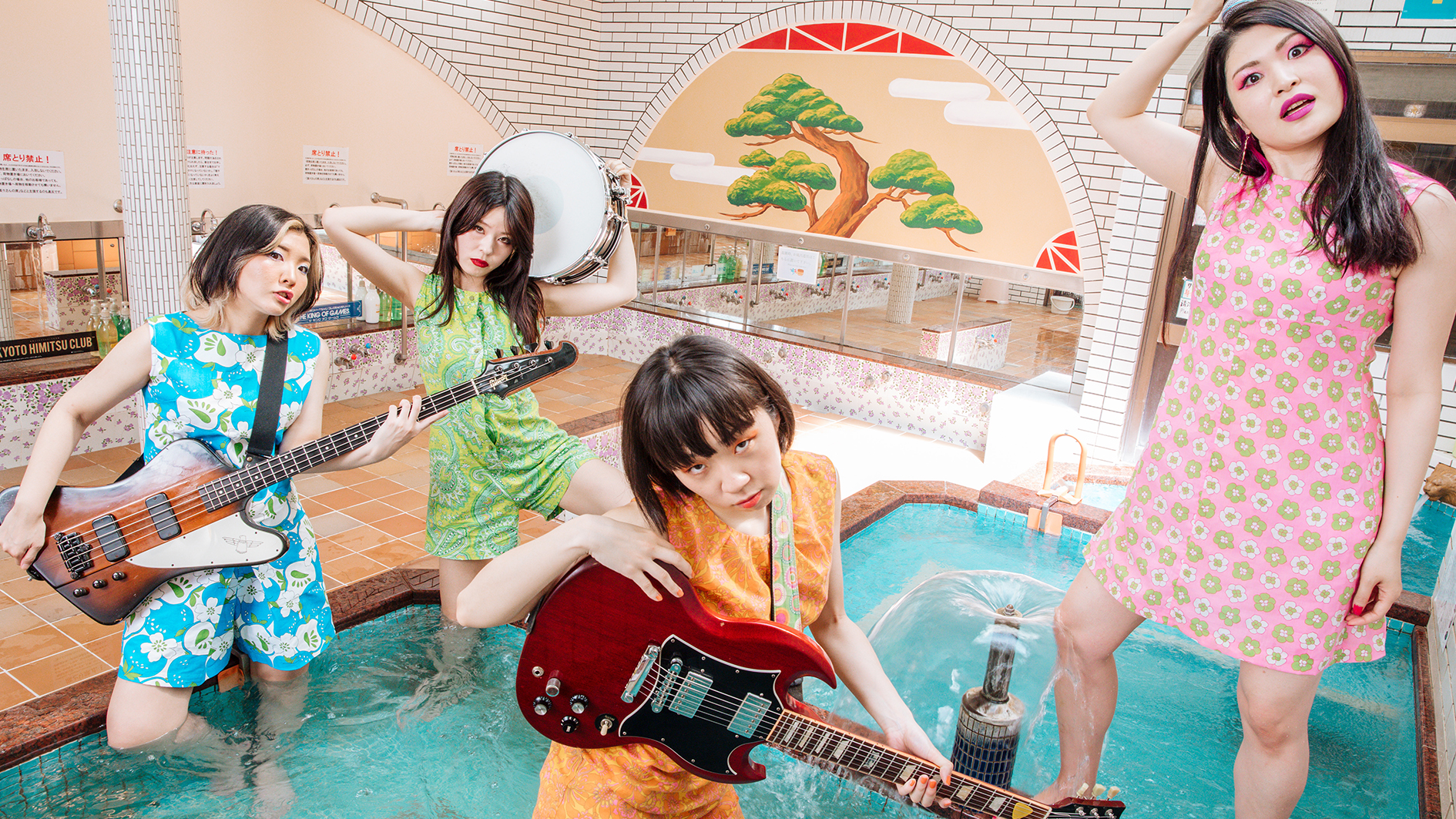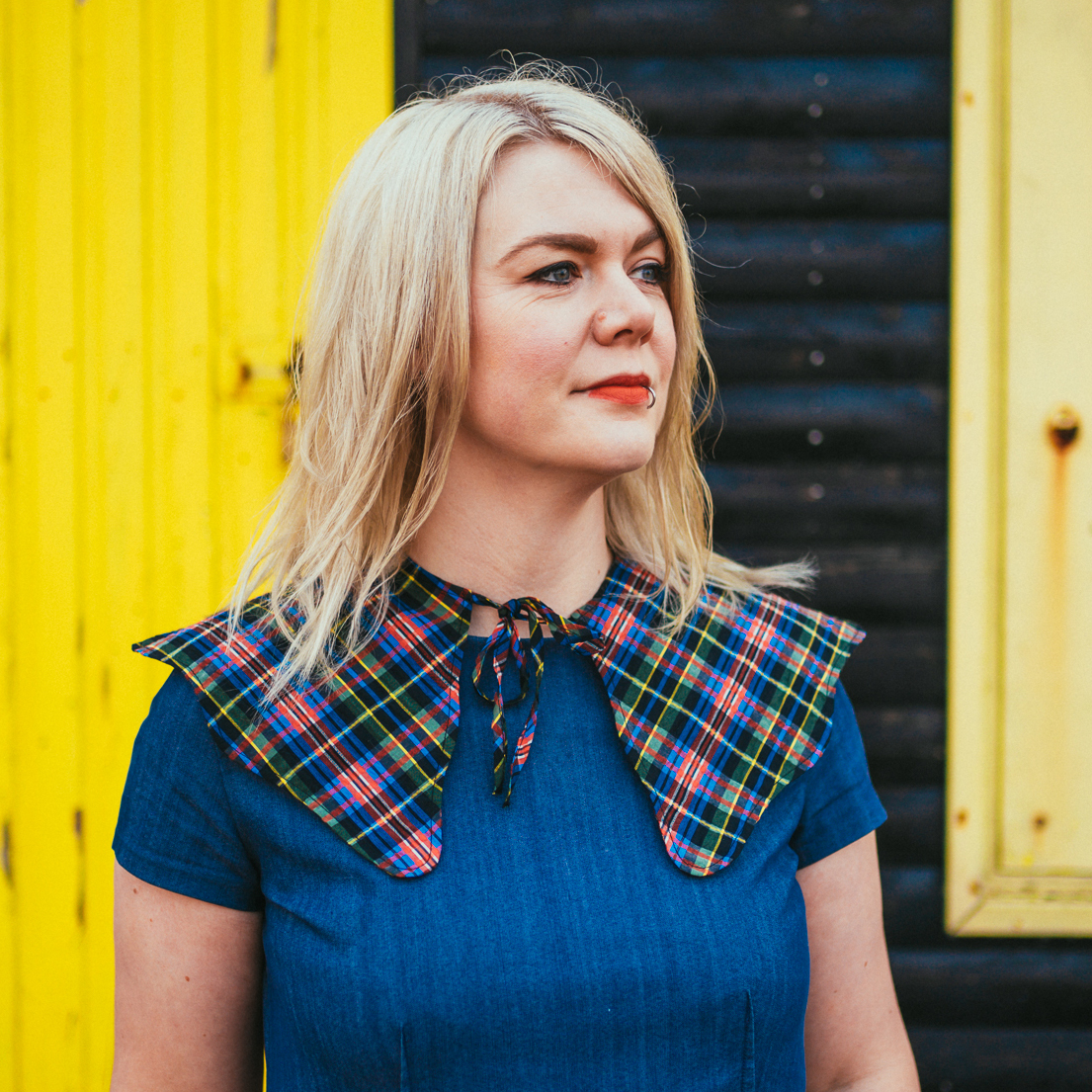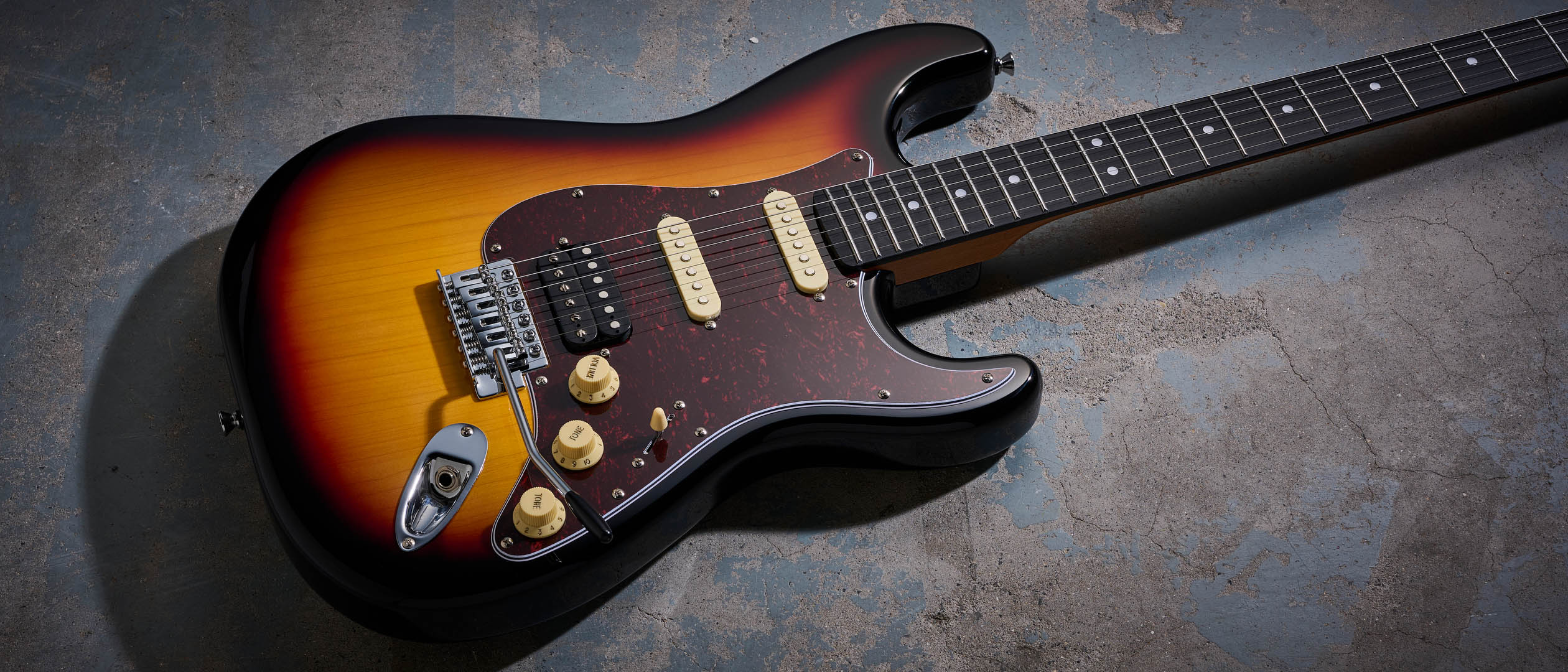Meet Otoboke Beaver, the Dave Grohl-approved Japanese punk-rockers influenced by everything from Manzai comedy to the Electro-Harmonix Big Muff
Accorinrin and Yoyoyoshie discuss their frenetic new studio outing, Super Champon, and crafting a guitar sound that's equal parts fury and finesse

In the spring of 2020, guitarists Accorinrin and Yoyoyoshie of Japanese quartet Otoboke Beaver had just quit their day jobs ready to embark on a world tour. Two weeks into the European leg, and before they’d even had a whiff of the New World, the rest of it ground to a halt.
“Losing the tour, then our jobs, we were trying to keep a positive attitude,” recalls vocalist and guitarist Accorinrin. The bandleader has dialed in from her home in and amongst the Zen rock gardens and vermilion shrines of Kyoto. As we wait for fellow guitarist Yoyoyoshie to join, she frantically sweeps across the room in a bid to create a tidier Zoom background.
The band, completed by Hiro-Chan on bass and Kahokiss on drums, have made a career out of the chaos, however.
Last year, speaking with Vulture magazine, Foo Fighters’ frontman Dave Grohl described Otoboke Beaver as “the most fucking intense shit you’ve ever seen”, and he’s not wrong. 2019’s Itekoma Hits was a masterclass in frenetic energy. Its fast-paced needling guitars and relentless drum spats wouldn't be out of place alongside Grohl’s own pounding noisemaking circa Nirvana’s Aneurysm.
Some three years on from this blistering body of anti-love songs, Otoboke Beaver are back with Super Champon, a record that takes a similarly bitesize approach but came together in a much more unexpected way.
“One of the songs, Don’t Call Me Mojo, was written as the theme song for a Japanese TV drama,” Yoyoyoshie explains readjusting her headphones as she enters the call. “But still, we didn't think about making a full album.”
She goes on to admit even the artwork – an alternative selfie of the four members’ faces jammed against the screen surrounded by multi-coloured boxing gloves and paint spatters – was created sat at her work desk. “The album has two eras: day job and no job!” she reasons with a grin.
Get The Pick Newsletter
All the latest guitar news, interviews, lessons, reviews, deals and more, direct to your inbox!
In the months that followed the announcement of a quarantine across the globe, everything began to slow down. Accorinrin’s attention turned to songwriting, adding a few of Otoboke Beaver’s signature micro-segues to what would become this full-length album – most notably Do You Want to Send Me a DM and Do You Want to Send Me a DM Pt. 2 with added wailing guitar lines and a frantic finale. Not to mention record closer Let’s Shopping After Show, with its stop-start call and response like a frantic Supermarket Sweep dash around the aisles.
To lay down the tracks, the band headed to Osaka’s LM Studios, the same studio space as used on label pals Shonen Knife’s recent swathe of Damnably releases.
Yoyoyoshie is particularly effusive about the experience recording with Osaka-based sound engineer, Ippei Suda, as she explains: “He helped both mentally and technically. Everyone had a vision for the album which was hard to manage but Mr Suda didn't reject any ideas. If I had a hesitation over a guitar part or a sound, he always gave great technical advice.”
My dad tried to teach me how to play but he was really rigorous with so much sheet music that I cried. It was too strict for me, so I started to hate playing
Accorinrin
The pair haven’t always responded so well to theory-based guidance. Growing up, Accorinrin recalls her dad also playing guitar in a band (“a dad’s band,” she jokes). Whilst the setting was encouraging in one perspective, it also pushed her a bit too far when it came to getting to grips with the instrument.
“With so many guitars at home, I never thought ‘girls don't play guitar’. My dad tried to teach me how to play but he was really rigorous with so much sheet music that I cried. It was too strict for me so I started to hate playing,” she admits.
Instead, during high school, Accorinrin stuck with singing at the local band club. It was only when she teamed up with the rest of the group in college that she rethought her attitude towards the instrument: “I knew I had to play for this band, so I became serious about the guitar again.”

Yoyoyoshie’s musical moment came much later, but with an immediate affinity to the six-string and a strong desire to pick up the instrument independently.
“I got a part-time job, saved money and bought a Fender Telecaster,” she beams. A country famed for its exceptional service, the Japanese store attendant even added a little something to bolster her sound into that first sale. “When I bought the guitar, the guy at the store gave me a Boss BD-2 Blues Driver pedal for free too!”
While Yoyoyoshie is proud to say she still owns the original Telecaster, her main guitar for the band’s live show is a Gibson SG, although she’s quick to add that “the Fender Telecaster has a great solo sound.” There’s also the promise of a replica being built by an Osakan luthier, Gombobass.
At Otoboke Beaver's live shows, we have a lot of technical accidents so I try to keep a simple small setup
Yoyoyoshie
Yoyoyoshie also had her heart set on a vintage Roland AF-100 BeeBaa Fuzz and Treble Booster. The band’s label gifted the rare pedal after using the cashback from tour hotel room bookings through Quidco.
But it’s Electro-Harmonix’s Big Muff that the lead guitarist keeps returning to with two or three set aside for tour.
“I always dreamed about a lot of pedals on my 'board but I didn't have a lot of money when I started [playing] the guitar,” she says of her enthusiasm for the fuzz. “So I decided to prioritise the one that I wanted the most which was a Big Muff. I find it easy to change channels and it has a loud distortion. Plus, at Otoboke Beaver's live shows, we have a lot of technical accidents so I try to keep a simple small [setup]!”
In a fitting contrast to the thick sounds of Yoyoyoshie’s Big Muff and her SG’s bottom-end, Accorinrin has recently added a Harmony Silhouette to the guitar rack, sidled in against her go-to Surf Green Fender Stratocaster.

While she’s more modest about her technical abilities, Accorinrin notes the difference between more traditional body builds. “The guitar is solid with a unique shape but also light!” she says.
It’s this balance that provides a running thread through Otoboke Beaver, from their dual-pronged guitarists on stage to their songwriting approach, which expertly toes the line between fury and finesse.
This technical teetering could be thanks to their off-kilter influences, with Accorinrin sharing that she takes a lot from the pace of Japanese stand-up comedy, Manzai. “Manzai has two people talking, like a conversation, and it has a rhythm – a slow and fast speed which fascinates me when I am songwriting,” she explains.
Otoboke Beaver will be bringing that dichotomy to American shores at the end of the year. And, when the subject of returning to the stage appears in our conversation, the excitement is palpable.
“We lost time but we really want to get back on the road again and pick up where we left off,” says Accorinrin, while Yoyoyoshie, after two years in limbo, is primed for the off: “We are totally ready!”
- Super Champon is out now via Damnably.
Cheri Amour is a writer, editor and broadcaster intent on amplifying the voices of women and non-binary artists in print, online and on air. During her twenties, she played lead guitar in a touring two-piece, sharing the stage with The Slits and John Peel-approved punks The Nightingales. Formerly Deputy Editor at TGA Magazine, Cheri headed up its Tech section pouring over pedals with everyone to indie icon Debbie Smith (Echobelly/Curve) to multi-instrumentalist Katie Harkin (Sleater Kinney/Waxahatchee/Wye Oak). She's currently working on an upcoming 33 1/3 book on the unassuming influence of South Bronx sister troupe ESG, out in Spring 2023.
“My guitar tech ran in and said, ‘Hey, you want to meet Pete?’ I was too scared”: The Smithereens’ love affair with The Who goes way back – yet when guitarist Jim Babjak got the chance to meet Pete Townshend, he turned it down
“Every tour was the best I could have done. It was only after that I would listen to more Grateful Dead and realize I hadn’t come close”: John Mayer and Bob Weir reflect on 10 years of Dead & Company – and why the Sphere forced them to reassess everything


![John Mayer and Bob Weir [left] of Dead & Company photographed against a grey background. Mayer wears a blue overshirt and has his signature Silver Sky on his shoulder. Weir wears grey and a bolo tie.](https://cdn.mos.cms.futurecdn.net/C6niSAybzVCHoYcpJ8ZZgE.jpg)

![A black-and-white action shot of Sergeant Thunderhoof perform live: [from left] Mark Sayer, Dan Flitcroft, Jim Camp and Josh Gallop](https://cdn.mos.cms.futurecdn.net/am3UhJbsxAE239XRRZ8zC8.jpg)






